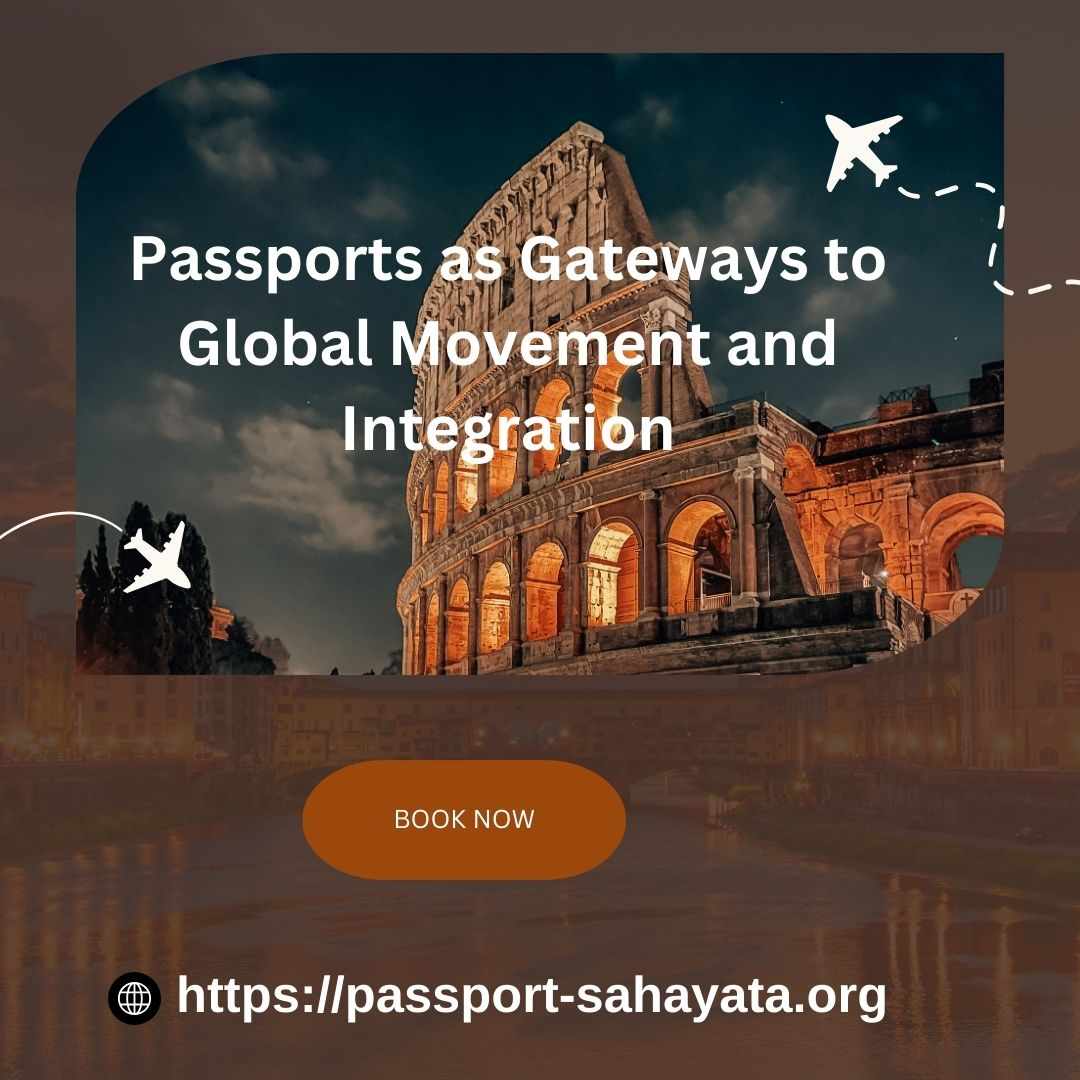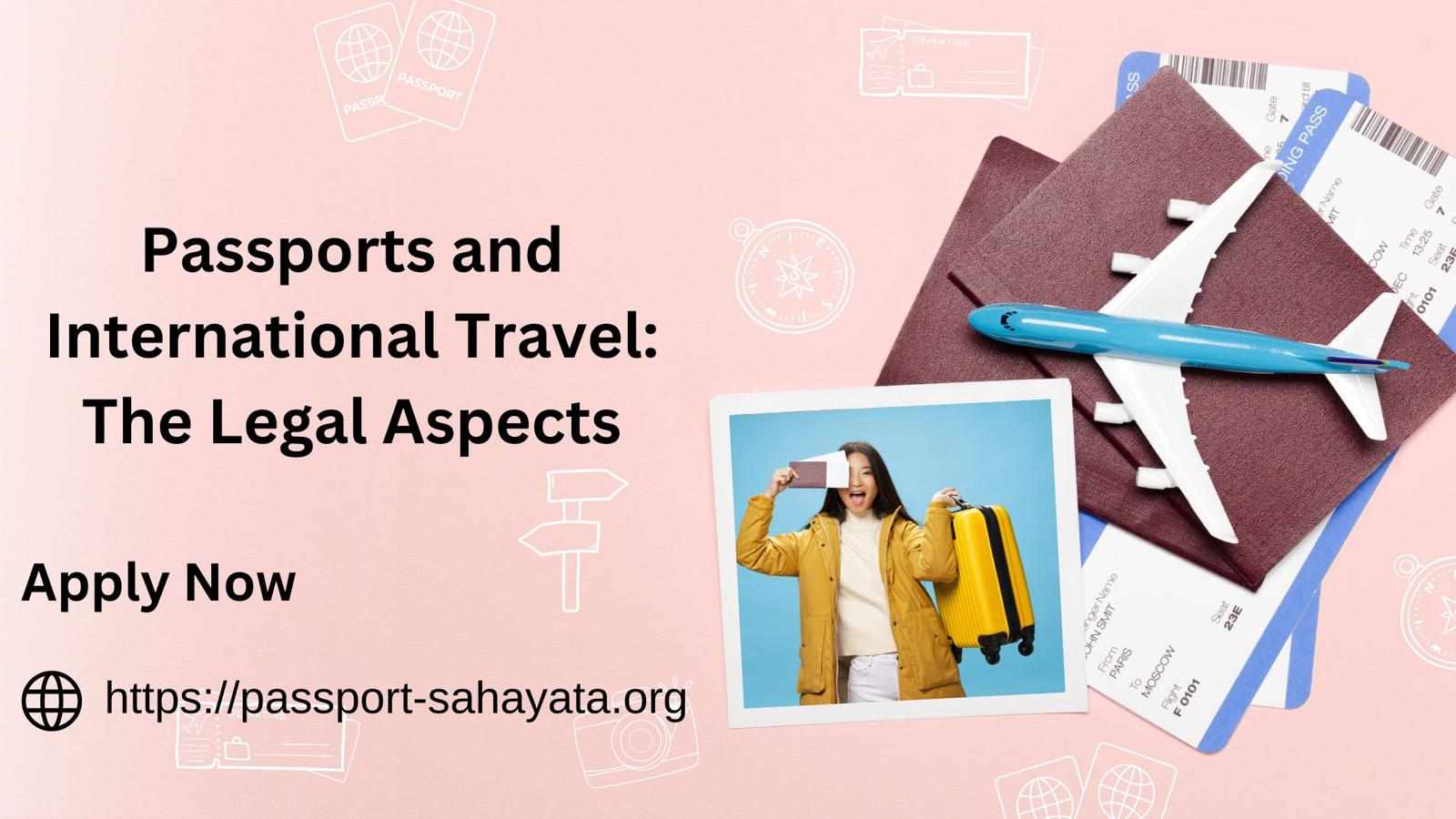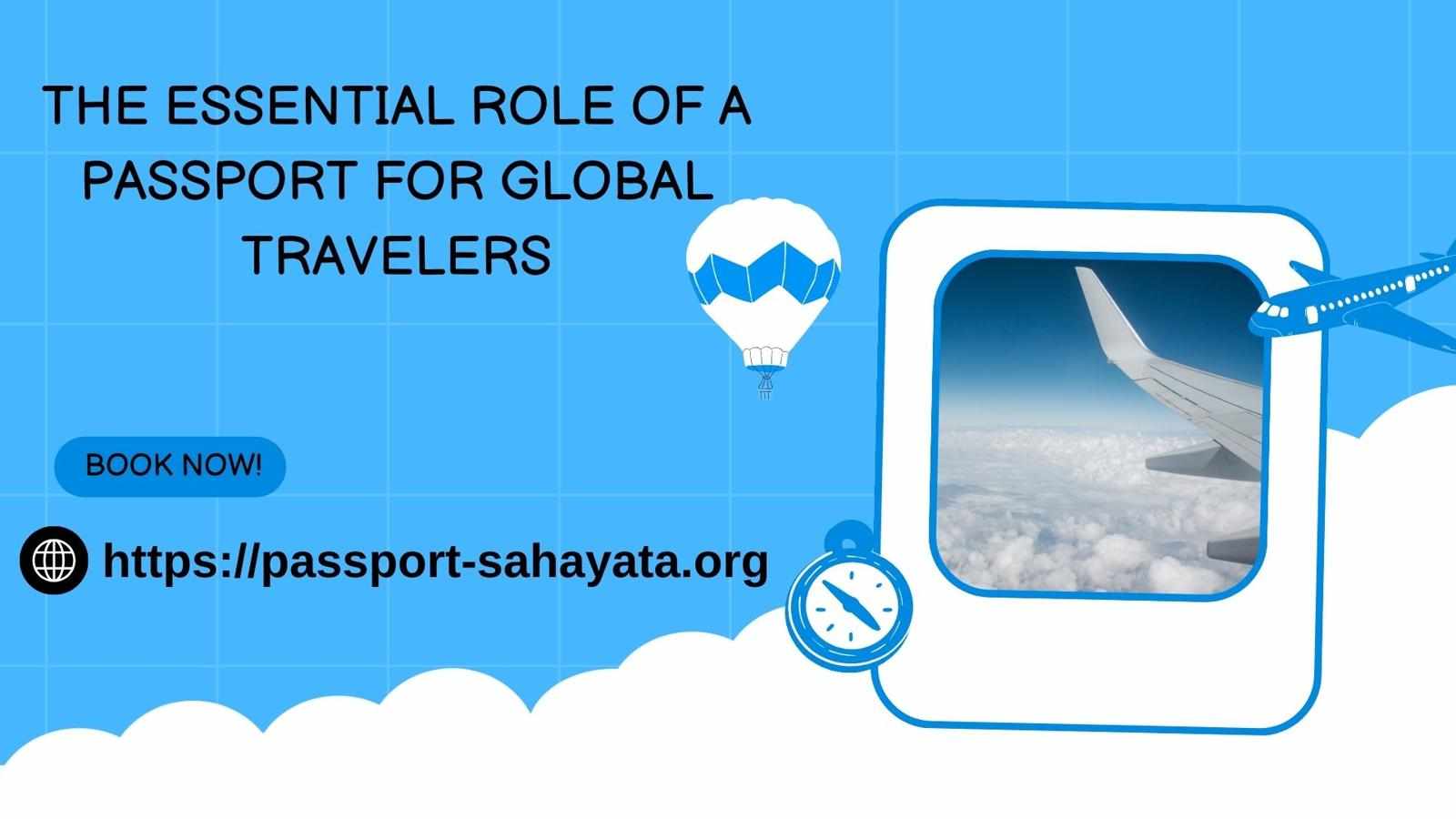
In an increasingly globalized world, passports serve as the primary means of facilitating international travel and cross-border mobility. These essential documents not only verify an individual's identity and nationality but also provide access to opportunities that transcend national borders. Beyond their role as travel documents, passports play a crucial role in fostering global integration, economic cooperation, and cultural exchange. This article explores how apply for passport function as gateways to global movement, their impact on international integration, and the challenges they face in the modern world.
1. The Role of Passports in Global Mobility
A passport is an official document issued by a government that certifies an individual's identity and nationality. It allows a person to travel from one country to another, signifying the holder's legal right to enter or exit a foreign country. A passport is necessary for international travel, as it serves as proof of citizenship and is required by immigration authorities in most nations.
Passports have evolved, becoming more sophisticated and secure as travel patterns and technologies advance. Historically, they were used as a way for governments to control borders and regulate travel. Today, they are crucial to the functioning of the modern world, facilitating movement for millions of people each year. Whether for tourism, business, education, or family reunification, passports open doors to new opportunities and experiences.
2. Passports and Economic Integration
One of the most important aspects of passports is their role in facilitating economic integration. In today’s world, businesses, workers, and investors rely on the ability to travel freely across borders to engage in global trade, employment, and investment. The economic benefits of passport-based mobility are wide-ranging and can have a significant impact on both individuals and nations.
Cross-Border Employment: Passports enable individuals to work in different countries, contributing to the flow of skilled labor and expertise across borders. This is particularly important in industries like technology, healthcare, and education, where workers can relocate to areas with a high demand for their skills. For instance, a software developer with a passport can explore job opportunities in countries like the United States or Germany, where the demand for tech talent is high. This mobility not only benefits the individual but also enhances the economy of the host country.
Trade and Business Expansion: Business owners and entrepreneurs rely on the ability to travel abroad to explore new markets, build partnerships, and strengthen international trade. A passport gives business leaders the freedom to meet potential clients, suppliers, and investors in person, making it easier to establish and expand global business operations. International meetings, trade negotiations, and business conferences all require the ability to move freely between countries, making passports essential for the success of global enterprises.
Tourism and Travel Industry: The tourism industry is a major global economic sector, contributing trillions of dollars to the global economy. Passports are at the center of this sector, allowing people to visit new destinations and stimulate local economies. When tourists travel to different countries, they spend money on accommodations, food, transportation, and experiences, directly benefiting local businesses. Countries with strong tourism industries, such as Spain, Thailand, and the United States, rely on passport holders to bring in revenue and create jobs.
3. Cultural Exchange and Global Understanding
Cultural exchange is another significant aspect of global integration facilitated by passports. Travel allows people to experience different cultures, interact with individuals from diverse backgrounds, and engage in the global exchange of ideas. This cultural understanding is vital in a world where tolerance, diplomacy, and cooperation are key to addressing global challenges.
Educational Exchange: One of the most important ways passports contribute to cultural integration is through study abroad programs. These programs allow students to study in different countries, immersing themselves in foreign cultures while earning academic credits. International education fosters global awareness, language acquisition, and intercultural communication, all of which are critical skills in the global economy. Students who travel abroad often return with a broader perspective on the world, making them more competitive in the global job market.
Workplace Diversity: Passports also play a vital role in promoting workplace diversity. As individuals move between countries for work or business, they bring with them new ideas, skillsets, and perspectives. This diversity is essential for fostering innovation and problem-solving in the workplace. Many global companies actively seek out employees from different cultural backgrounds to create diverse, dynamic teams capable of tackling complex challenges from multiple viewpoints. Passports enable the free flow of workers and talent, enriching workplaces worldwide.
Tourism and International Friendship: Travel, facilitated by passports, helps to break down cultural barriers and foster international friendships. People who travel to foreign countries often develop a deep appreciation for the customs, traditions, and lifestyles of other nations. In turn, they become ambassadors for cultural exchange when they return home, sharing their experiences with others and promoting understanding. Tourism encourages tolerance and respect, helping to combat stereotypes and misconceptions about foreign cultures.
4. The Future of Passports: Digital Solutions and Global Mobility
The future of passports is likely to involve digital technologies that will make international travel even more efficient and accessible. Electronic passports (e-passports), which contain biometric data such as fingerprints or facial recognition, are already in use in many countries. These smart passports provide greater security and allow for faster, automated processing at borders, reducing the time and hassle associated with traditional passport checks.
In addition to e-passports, digital travel documents may become a reality shortly. Many countries are exploring the idea of digital or mobile passports, which could be stored on smartphones or other devices. These digital solutions would make it easier for people to access their passport information and streamline the process of crossing borders. Digital passports could also reduce the need for physical paperwork, making the travel process more efficient and environmentally friendly.
Despite these advancements, challenges remain. Issues such as data privacy, cybersecurity, and digital access must be addressed before digital passports become widely adopted. Governments and international organizations will need to work together to ensure that digital solutions are secure, accessible, and compliant with international travel standards.
Note: Apply for passport renewal online easy way
Conclusion
Passports are gateways to the global movement, enabling individuals to cross national borders, explore new cultures, and access opportunities that transcend their home countries. They play a vital role in economic integration, cultural exchange, and fostering global cooperation. However, passport inequality remains a significant barrier to true global integration, with many individuals facing restrictions based on the strength of their passports.



Write a comment ...